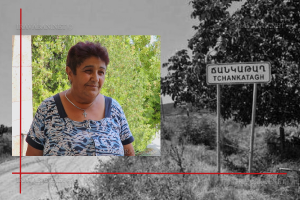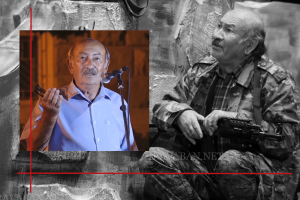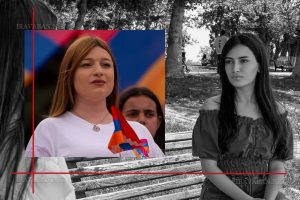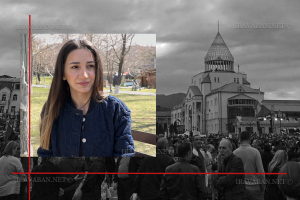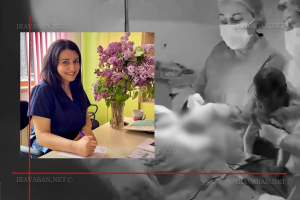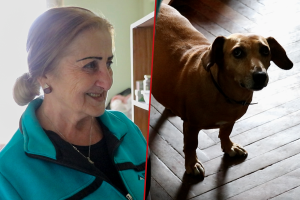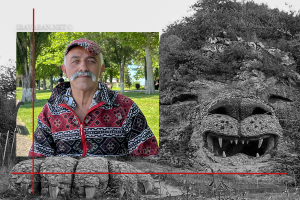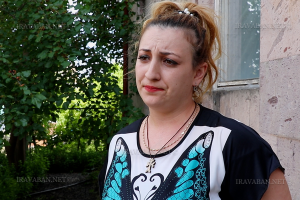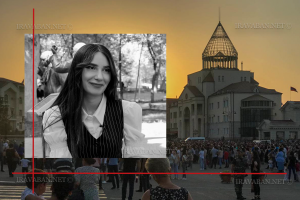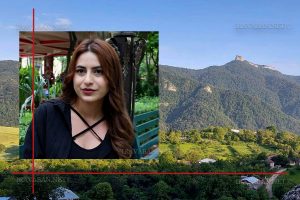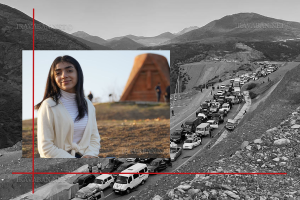Anush Musayelyan worked in one of Artsakh schools. On 19 September, when the attack of Azerbaijan began, she was in the gymnasium.
“I have seen 3-4 wars, but this time the explosion sounds were different. As if they were applauding,” she tells in the framework of “Artsakh: Armenian Genocide 2023. Stories of Survivors” documentary project of Iravaban.net.
Anush went down to the shelter of the school with the students, then the Mayor of Martun, Aznavour Saghyan, came with some boys and told us to move to the basement of the administration building. The residents went there, and then to the basement of the house of culture to their families.
“I was with my grandchildren. My daughter-in-law was in the hospital; her 4th child was being born. He was born on 24 September. We spent the whole day like that; the boys were in the position. The situation was very cruel and hopeless. The people were desperate. During the previous wars, we hoped that we would stand until the end. But this time…my boys were in position, I said: “That is it, this is the end, we are tired.” The child was born, we were told to go and take the child. There was no one in the hospital. We took the child and went to Stepanakert,” our interlocutor says.
Further the family found fuel and began the migration journey on 26 September. They met Azerbaijanis at the Hakari bridge checkpoint. Anush notes that she brought her children, grandchildren and “a piece of clothing” from Artsakh. They left 2 houses, a car, a chicken house and a pomegranate garden. “We had a big garden, where pomegranates, plums, cherries, apples, quinces, pears, cornel… everything grew.”
The woman does not even want to hear about the so-called integration proposed by Azerbaijan. “I do not think it is possible. I have a friend who lost her 2 sons. I cannot imagine that the Aghasyans’ mother would be in favor of that integration.”
She says that they have no expectations from the UN or other international organizations.
“If a person saw the flow of those cars at night, with their lights on… there is no one, not even from the local authorities our governing bodies in Artsakh, Armenia, to expect anything from, not talking avout what we could expect from the United Nations. How can you live with someone who constantly has to remind you that you have lost, who has to say: Karabakh is Azerbaijan? That one sentence, written near Shushi, makes me mad. I cannot bear that they say that Karabakh is Azerbaijan. Go to the cemeteries; look at the years on the stones, the century. It will be clear then whether Artsakh is Azerbaijan or Artsakh is Armenia,” Anush, who settled in Arzni with her family says.
The great grandson asked his father to paint the house. “That only picture has remained in our memories here.”
“Artsakh: Armenian Genocide 2023. Stories of Survivors” documentary project of Iravaban.net is aimed at collecting the memories and testimonies of citizens forcibly displaced from Artsakh occupied by Azerbaijan, about the genocide of the Armenians of Artsakh committed by Azerbaijan, atrocities, the days of war, the path of deportation, etc.
Iravaban.net seeks help from citizens who will voluntarily agree to translate materials into different languages: Russian, English, French, Arabic, Persian, Turkish, Georgian, Chinese…
You can write to our e-mail address at: [email protected]
Details in the video.

